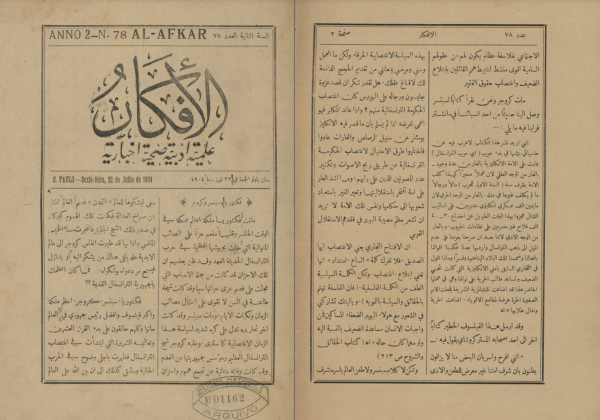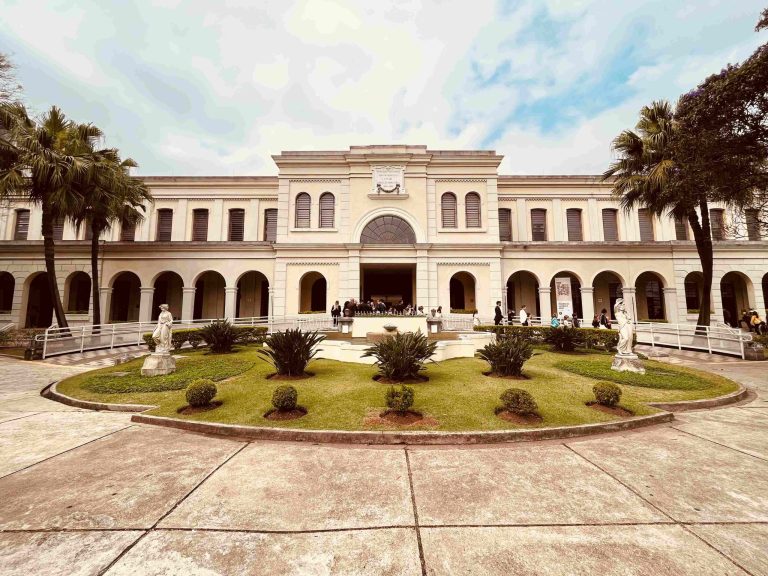São Paulo – The contribution of Arab immigrants who came to Brazil will be celebrated by the Museum of Immigration of São Paulo, with a special program on Saturday (23). The National Day of the Arab Community is celebrated in Brazil next Monday, March 25. The Museum of Immigration will offer its visitors a lunch featuring Arab cuisine dishes made by chef Salsabil Matouk, followed by a lecture on the Arab press in Brazil, a thematic visit on the Syrian and Lebanese immigration, and a visit to the reserve collection of the museum, where rare copies of Arab newspapers will be presented. (Pictured above, the façade of the Museum of Immigration.)
According to Museum of Immigration anthropologist and researcher Evelize Moreira, the institution sought to celebrate the date this by shedding a light on the Arab press in the country. The lunch conducted by the Syrian chef, who has also lived in Jordan and Saudi Arabia, will take the participants through different food cultures from Arab countries, in a menu consisting of starter, main dish, and desert. Journalist and historian Diogo Bercito will speak about the Arab press in Brazil, particularly the Al-Afkar journal, a rare copy of the institution’s collection.
“We decided to focus the program on the Arab press in Brazil because, when we think about the Arab community, we usually think of food and commerce, but there has been a very strong intellectual production, too, and we see it as a migrant heritage of this community,” says Moreira. “This immigrant press left a legacy, because it hasn’t stopped since, as there are still publications for this community,” she says.

The Al-Afkar journal, one of the rare copies kept by the institution, was made by Syrian immigrants. It circulated from 1903 to 1941 and had subscribers across all Brazilians regions, as well as the United States, Argentina and other countries in Latin America. It brought news on the immigrant community and their countries of origin. It was donated to the institution by the granddaughters of its owner Said Abujamra, pedagogue Ede Abujamra and actress Iara Jamra.
Another journal, Azzikra, was heavily focused on facts and stories related to Islamism. Besides them, the Al-Ubarat magazine will also be presented to visitors in the museum’s air-conditioned reserve collection room. Iara and Ede will participate in the event and share memories and their family legacy with visitors.
“The European immigration was subsidized, but the [Arab] community wasn’t. [The Arab immigrants] came for reasons related to the Ottoman Empire, with no subsides. They came with eyes on settling down, developing the place they were at, and get rich, in a way. They came to invest in the country, not only to make a living, and we don’t always acknowledge that. We can think it as a legacy in the development of trade, culture, and journalism,” she says.
Quick facts
Special Program | Brazil’s National Day of the Arab Community
Saturday, 11am-4pm
Tickets: BRL 140
Find out more
Translated by Guilherme Miranda




